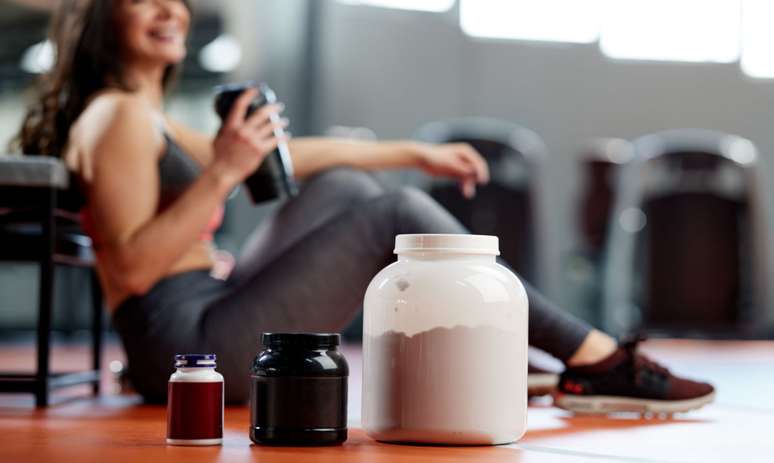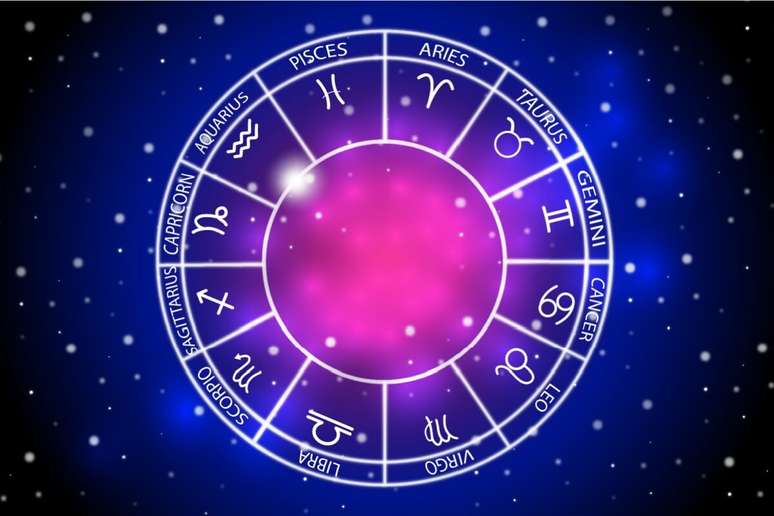Whether it’s whey, creatine, caffeine or omega-3s, workout supplements are surrounded by doubts and unclear myths – until now
Does whey protein cause acne? Does creatine make you fat, cause kidney stones, or cause hair loss? No matter the type, the most popular supplements in gyms always raise doubts in those who start to worry about training and nutrition.
To clarify the myths and questions that generate products such as whey, creatine, caffeine and omega-3, we invited three doctors in different areas to put an end to doubts and fake news. Watch:
Is whey protein anabolic?
NO. Whey protein is whey protein, which helps repair muscles after physical activity. “Whey protein is a protein supplement while anabolic steroids are androgenic hormones that stimulate the development of certain tissues in the body. They are therefore totally different substances,” explains nutritionist Dr. Marcella Garcez, director and professor at the Brazilian Association of Nutrology (ABRAN).
Does whey protein cause acne?
Depends. According to Dr. Cintia Guedes, dermatologist member of the Brazilian Society of Dermatology (SBD), before talking about this relationship between acne and whey protein, it must be emphasized that acne is a multifactorial problem, caused by inflammation of the sebaceous gland.
“Let’s also remember that there is a relationship between milk consumption and acne, in predisposed individuals, since milk proteins can increase sebaceous secretion. A dose of whey proteins derived from milk proteins can be equivalent to 6- 12 liters of milk will significantly increase the production of the sebaceous gland, culminating in a worsening of the acne condition in those who already have the problem, or contributing to the appearance of acne-like lesions – acneiform – in subjects who do not have an acne tendency” , clarifies the doctor.
He also says that if the problem arises, the patient can replace the whey protein derived from milk protein with beef protein (meat protein) or a vegan protein supplement. “And, of course, treating the acne and correcting the other possible causes,” explains Dr. Cynthia.
Can lactose intolerant people take whey protein?
YES. According to Dr. Marcella, in fact, those who are lactose intolerant cannot take any whey protein, because the concentrated form (the best-selling one) contains lactose. Therefore, they have to choose the isolated form, with zero lactose in the composition, information that must be present on the product label.
“People with a lot of sensitivity to dairy products, with indications of protein supplements, can opt for other sources such as beef protein, from meat, and vegan protein powder, from legumes,” says the nutritionist.
Can whey protein be consumed even by non-trainers?
YES. Whey protein is a protein powder and, as such, can be used if the daily protein requirement is not met through nutrition, or to add a handy protein option to snacks and in-between meals.
“Whether or not you go to the gym, this supplement can be welcome, without exaggerating, in the routine of anyone who has no contraindication to lean mass, curbing the loss of muscle mass that occurs with age,” he explains dr. Marcella.
Creatine fattening?
NO. “Creatine is an amino acid, which is found in the body, which is able to synthesize it, in protein foods and ergogenic supplements. The primary destination of creatine is skeletal muscle tissue where it is a source of energy generation,” explains Dr. . . Marcella Garcia.
“As a supplement, it does not appear to increase muscle ATP concentration at rest, but it does help maintain ATP levels during peak exertion, so its effect depends on your training. Creatine is not fattening, as it does not increase the amount of body fat, however, can lead to weight gain, because with proper training and diet the muscles should hypertrophy, which results in weight gain. Increasing circulating levels of creatine in the muscles can increase the amount of water inside them, which should have an impact on tissue volume and weight”, clarifies the nutritionist.
The expert points out that gaining weight from gaining lean body mass is not the same as gaining fat.
Does creatine cause hair loss?
NO. Creatine is one of the most popular supplements among gym-goers due to its association with increasing strength and reducing muscle recovery time. However, a study published in 2009 involving rugby players who used creatine for 3 weeks associated the product with baldness.
In these athletes there was an increase in dihydrotestosterone (DHT), a substance that is part of the mechanism that leads to baldness. Therefore, it was assumed that the use of creatine would be able to worsen this condition. However, it is not known whether the athletes used anabolic steroids or other supplements concurrently, whether this increase in DHT led to balding progress in the genetically predisposed athletes, or whether this increase would also have occurred in non-athletes.
“Therefore, until now, there is no way to prove this relationship between creatine and baldness. This is why it can be used by patients with different degrees of baldness”, emphasizes Dr. Cintia Guedes.
Does creatine cause kidney stones?
NO. Creatine is an amino acid that generally exists in our muscles and brain. It is stored as phosphocreatine and serves as an energy source, explains nephrologist Dr. Caroline Reigada, intensive care medicine specialist at the Brazilian Association of Intensive Care Medicine.
“People take creatine to improve muscle mass and athletic performance. Current evidence tells us that taking creatinine in adequate doses is safe for the kidneys. Creatine supplements increase laboratory creatinine levels, but not the kidney function itself. Likewise, kidney stones no longer occur in those who take this type of supplement, “clarifies the nephrologist.
Can caffeine harm people with hypertension?
YES. Dr. Marcella cautions that caffeine is a stimulating bioactive compound, which can increase vascular resistance and impede blood flow by causing vasoconstriction, which results in an increase in blood pressure.
“The Food and Drug Administration considers up to 400 mg of caffeine per day (4 to 5 cups) safe. High doses, however, can lead to increased blood pressure, palpitations, and insomnia. Caffeine in hypertensive patients,” recommends Dr. . Caroline Reigada.
Weight loss with caffeine?
Depends. According to the nutritionist, this belief is a truth and a myth at the same time. “Caffeine is a substance with ergogenic activity, as it helps to increase physical performance, and thermogenic, because it can help to increase adaptive energy expenditure, during the practice of physical activities or in the digestive process. In this way, it can be a complementary strategy in weight loss treatments. However, caffeine alone is not likely to promote weight loss,” he says.
Therefore, the ideal is to combine it with exercise and be in a calorie deficit (eating less than the body spends) to lose weight, says the doctor.
Do omega-3s prevent injuries?
NO. Omega-3 supplementation in physical activity practitioners can have positive impacts on the biochemical indicators of lipid metabolism, influence the reduction of plasma lipoproteins and the prevention of cardiovascular diseases, according to Dr. Marcella.
“There are indications that the use of omega-3 fatty acids may help attenuate the effects of inflammatory processes in muscle injuries, because they help reduce the release of pro-inflammatory cytokines. But simply consuming omega-3s does not prevent the onset of lesions,” explains the nutritionist.
Therefore, to avoid injury, always evaluate proper execution when performing an exercise and always have the guidance of a physical education professional.
Source: Terra
Ben Stock is a lifestyle journalist and author at Gossipify. He writes about topics such as health, wellness, travel, food and home decor. He provides practical advice and inspiration to improve well-being, keeps readers up to date with latest lifestyle news and trends, known for his engaging writing style, in-depth analysis and unique perspectives.





-qhia6ba319wh.png)


